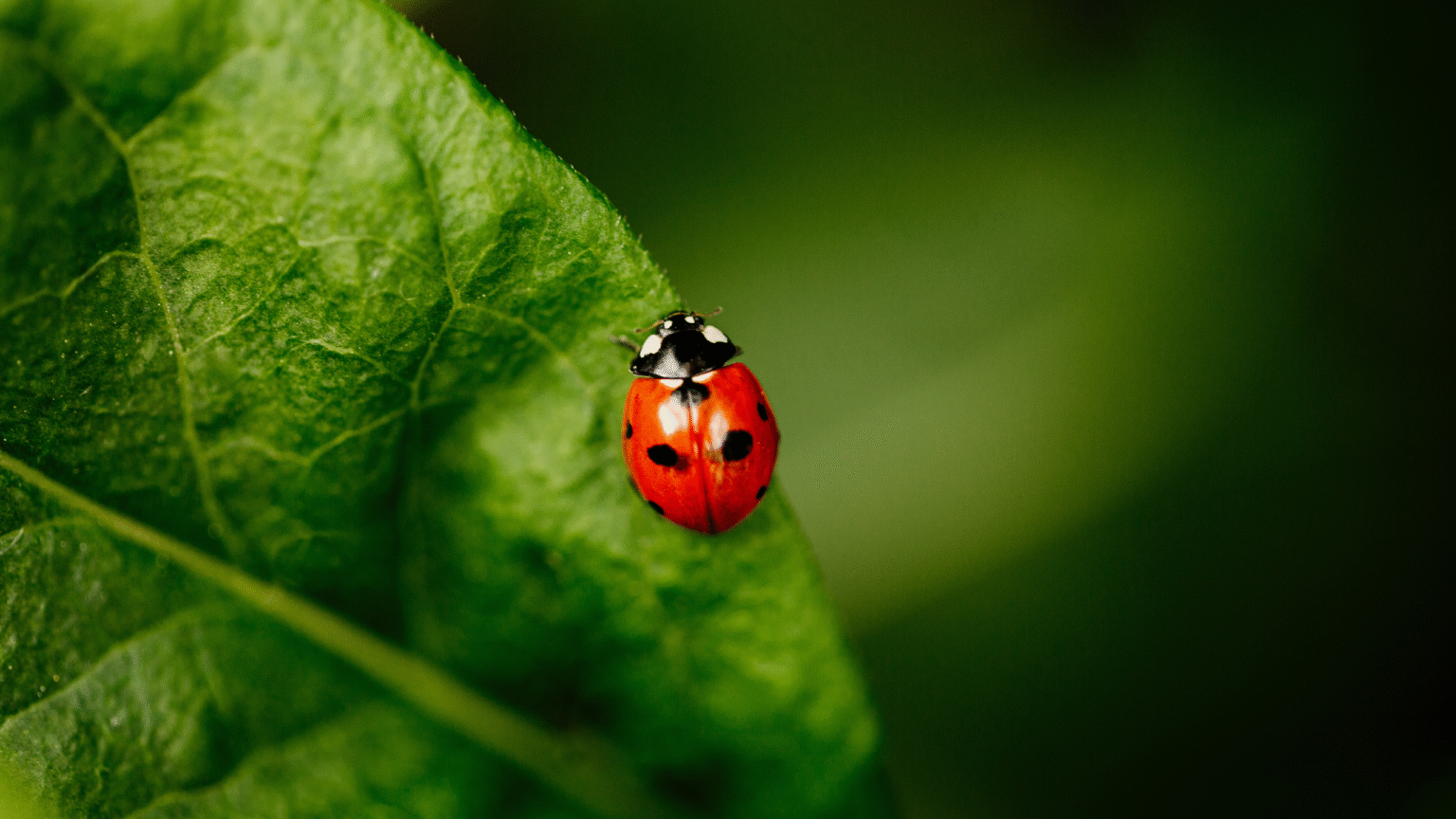You may have noticed an unusual number of ladybirds in your home recently, and as news of a ladybird invasion swarms social media feeds this week (pardon the pun), here are six scents that will deter these little red bugs from your home.
While it may feel a little like a ladybird invasion, what’s actually happening is that ladybirds are looking for somewhere safe and warm to hunker down over winter. But while it is beneficial to attract ladybirds to your garden, they can be a less welcome guest in your home.
Using scent is a great way to deter ladybirds without harming them or getting rid of them from your garden. While ladybirds don’t ‘hate’ smells in the sense we do, there are some scents they will naturally avoid. Here’s how to use them.
1. Apple cider vinegar
Like a lot of pests, the strong scent of vinegar can be very offensive to their senses, which is why it’s always worth keeping vinegar stocked up in your cleaning cupboard. This method requires apple cider vinegar, which, if you don’t have in your larder, can be picked up for £5.50 on Amazon.
‘Mix water with a few drops of apple cider vinegar in a spray bottle and lightly mist areas where ladybirds cluster. If you don’t have a spray bottle, fill a shallow bowl with a mix of water and a few drops of vinegar,’ says Alex Woods from Victorian Plumbing.
‘They are deterred by the strong scent, encouraging them to move away. This method is particularly good for using ingredients you probably already have at home, meaning you save money by not buying specialist big removers. This simple, eco-friendly way gently nudges ladybirds from the home, without using chemicals.’
2. Bay leaves
Yet another item you can grab from your larder or spice rack, bay leaves (£3.65 at Amazon) may be fragrant to use, but ladybirds are not a fan.
‘Placing dried bay leaves on window sills or in small bowls near light sources can act as a subtle yet effective deterrent,’ says Daniel Steward, Managing Director at Shield Pest Control.
‘Bay leaves release volatile aromatic oils with a slightly bitter scent that ladybirds dislike. These oils interfere with their chemical communication signals, discouraging them from clustering or nesting near the source.’
3. Citrus
Ladybirds can be repelled by lemon peels and other strong citrus scents such as lemon oil (£4.99 at Amazon).
‘The strong citrus scent overwhelms their senses, making them less likely to settle indoors or on plants. A few drops in a diffuser or diluted in a spray bottle can help keep them at bay,’ explains Daniel.
Alternatively, Tony King, pest control expert, owner and manager of The Pied Piper recommends using the peels directly.
‘Ladybirds hate the natural oils in fresh lemon or orange peels. Put them near windows, doors, and any other places where you see these bugs. Using fresh peels is the most important thing. The oils evaporate, so dried ones don’t work very well. For best results, change them every few days.’ he says.
4. Lavender
We love lavender at Ideal Home. Lavender is a superhero plant largely because of its ability to repel multiple pests, and ladybirds are no different. For this method, you can use both lavender oil (£4.99 at Amazon) and dried lavender sachets (£6.79 at Amazon).
‘Lavender contains linalool, a naturally occurring alcohol compound that repels many insects. While pleasant to humans, linalool is too strong for ladybirds, making the air around lavender-scented areas uncomfortable for them to remain in,’ says Daniel
‘Using lavender-scented candles, sachets, or essential oil sprays can help prevent infestations naturally.’
4. Clove
Perfect for the upcoming festive season, you can use clove oil (£8.49 at Amazon) to deter ladybirds, while giving your home a seasonal fragrance boost.
‘Put some water and a few drops of clove essential oil in a spray bottle. Spray it on windowsills, door frames, and anywhere else you see ladybugs gathering. They don’t like the smell, but most people do,’ says Tony.
‘For every cup of water, use about 10 drops. More than that is too much for people to handle as well. Every week, or after cleaning those surfaces, spray it again. Over time, the oil loses its power.
‘You can get clove oil at most health food stores or online. It costs more upfront than some other options, but a small bottle lasts for months. I’ve also seen people use whole cloves, but the oil works faster and covers a bigger area.
‘You also don’t want to have cloves all over your house. This is better than harsh chemicals because it won’t hurt ladybugs or your family.’
6. Peppermint
Sticking with the festive theme, the last scent on this list is peppermint – and all you need is a splash of peppermint oil (£4.99 at Amazon) mixed with water.
‘Peppermint oil is one of the most effective natural deterrents for many insects, including ladybirds. Its strong menthol scent disrupts their sense of smell, discouraging them from nesting or gathering indoors. A peppermint spray made from water and a few drops of essential oil can be used around window frames and corners,’ says Daniel.
‘Peppermint oil’s high menthol content creates a cooling, penetrating scent that overwhelms ladybirds’ delicate olfactory system. The strong smell disrupts their ability to navigate or identify suitable surfaces for shelter, so they tend to avoid it altogether.’
Ladybirds are harmless but you don’y exactly want thousands of these critters in your home. Using scent is a safe and humane way to deter these bugs without harming them.
Read the full article here
